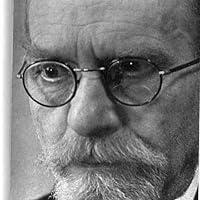
Edmund Husserl
저자에 대하여
Edmund Husserl was a prominent philosopher known for founding the field of phenomenology. His work focused on consciousness and the structures of experience, emphasizing how individuals perceive and interpret the world around them. Husserl's insights laid the groundwork for many existential and phenomenological thinkers who followed, significantly influencing 20th-century philosophy. His seminal texts, such as "Logical Investigations" and "Ideas," explored the relationship between thought and experience, challenging traditional notions of objectivity and emphasizing the importance of subjective experience in understanding reality.
Throughout his career, Husserl engaged with various philosophical traditions, including German idealism, and sought to clarify the foundations of mathematics and science. His rigorous method of epoché, or phenomenological reduction, urged thinkers to suspend their preconceived beliefs to analyze the essence of phenomena. This approach profoundly impacted later philosophers, including Martin Heidegger and Jean-Paul Sartre, who expanded upon Husserl's ideas in their own work, shaping modern existentialism and hermeneutics.